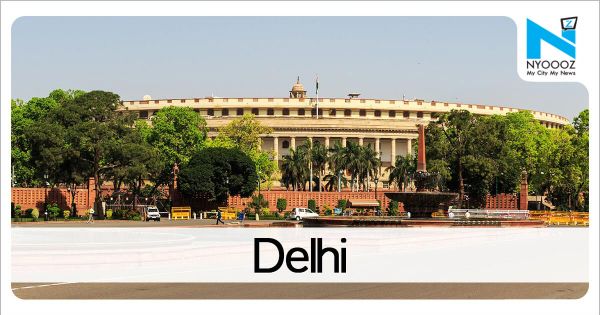
New Delhi, Aug 7 (PTI) A new book on Article 370 chronicles its journey from the cradle to the grave through a contested birth, lawyerly machinations in its early years, endemic political skulduggery, episodic displays of judicial statesmanship, and a sudden and swift demise."Hamin Ast: A Biography of Article 370" by Arghya Sengupta, Jinaly Dani, Kevin James and Pranay Modi tells the story of how Jammu and Kashmir became part of India in 1947, achieved special status in 1950, shared a fractious relationship with New Delhi for the next seven decades, only to be reduced to a Union territory on August 5, 2019.According to authors, the nullification of Article 370, like its genesis and much of its operation, was vexed."Its formulation was an afterthought to capture the temporary compromise between Srinagar and New Delhi. As relations between the two soured, it became a source of deep mistrust for political forces in Kashmir," the book says."The twists and turns of Jammu and Kashmir politics, however, meant that after a tumultuous first decade, Article 370 surprisingly became the mainstay of constitutional relations between India and Jammu and Kashmir; over the next few decades, it was a vehicle of greater integration."In the words of (the then) home minister Gulzarilal Nanda, it was "a tunnel (through which) a good deal of traffic has already passed and more will". This long journey of seven decades came to an abrupt halt when the tunnel was razed in 2019," it says.Historical events and political actors are covered in this book only to the extent that they have a bearing on the drafting, interpretation, operation, and nullification of Article 370.The authors argue that the emphasis of Article 370 has always been on collective decision-making by the representatives of Jammu and Kashmir on the one hand, and the Indian government on the other hand.The fundamentality of this mutually cooperative decision-making was the cornerstone of the early stages of drafting Article 370, and had remained a central feature of the text of the Article in subsequent iterations of the draft. Ironically, even the erosion of the special status of the state was facilitated by such cooperation, they say."In the actions of August 2019, the absolute negation of any participation from Jammu and Kashmir is squarely antithetical to the original constitutional compact. While that compact, like every other constitutional article, can change, it can change only in the manner that is envisaged. Literal gymnastics may go some way in sidestepping legal difficulties, but if allowed to carry the day, will only do so by extinguishing the spirit of that agreement," they write.They are of the view that while the nullification of Article 370 was indeed the culmination of a long-standing party-political promise, the nature of a constitutional democracy is such that it requires that party-political promises must also be fulfilled in a constitutional manner."Laxity on this front - allowing the adoption of unconstitutional means to fulfil political promises - puts the polity on a slippery slope, where all constitutional norms are destined to become dispensable. This usually does not bode well for the long-term health of democracy and democratic norms of governance," they say.According to the authors, the last word on the biography of Article 370 may yet be written by the Supreme Court."While Article 370 may now be history, the complicated contestations that animated its birth, life, and death, continue to unfold. On 25 April 2022, the Chief Justice of India mentioned that he might consider listing the pending petitions challenging the nullification and reorganisation shortly," the book says."Hamin Ast" is the first book from Navi Books, an open-access digital book publishing platform from Vidhi Centre for Legal Policy, and was launched August 5.Speaking at the launch, former Chief Information Commissioner Wajahat Habibullah said there was no need for Article 370."The article deprived Kashmir of all benefits available to other states. It was not something that helped the sovereignty of Jammu and Kashmir. It was more regressive than the developments that were taking place in the rest of India and those developments could not apply to Jammu and Kashmir because of its special status," he said.Supreme Court advocate Arvind P Datar did not see any unconstitutionality in what was done."From a legal perspective, there was nothing wrong as the constitutional assembly had ceased to exist," he said. PTI ZMN RDS RDS RDS

If You Like This Story, Support NYOOOZ
Your support to NYOOOZ will help us to continue create and publish news for and from smaller cities, which also need equal voice as much as citizens living in bigger cities have through mainstream media organizations.
Stay updated with all the Delhi Latest News headlines here. For more exclusive & live news updates from all around India, stay connected with NYOOOZ.










